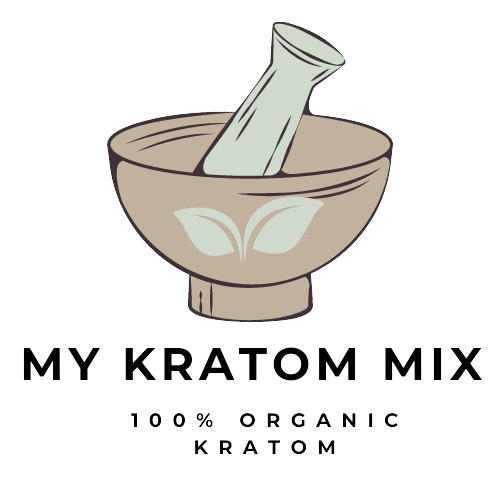Kratom (Mitragyna speciosa), a tropical tree native to Southeast Asia, has been used for centuries for its medicinal properties. In recent years, it has gained popularity worldwide, particularly for its potential benefits in managing mental health conditions such as anxiety and depression. This blog explores how kratom may help alleviate symptoms of these conditions, supported by scientific evidence and user testimonials.
Understanding Anxiety and Depression
Anxiety and depression are among the most common mental health disorders globally. They can significantly impact a person's quality of life, affecting their ability to function daily and maintain relationships.
- Anxiety: Characterized by excessive worry, nervousness, and fear, anxiety can lead to physical symptoms like increased heart rate, sweating, and trembling.
- Depression: This condition involves persistent feelings of sadness, hopelessness, and a lack of interest or pleasure in activities. It can also cause physical symptoms such as fatigue, changes in appetite, and sleep disturbances.
The Role of Kratom in Mental Health
Kratom contains over 40 active compounds, with mitragynine and 7-hydroxymitragynine being the most prominent. These alkaloids interact with various receptors in the brain, influencing mood, energy levels, and pain perception.
1. Anxiolytic Effects
One of the most widely reported benefits of kratom is its ability to reduce anxiety. This effect is believed to be due to its interaction with the brain’s opioid receptors and serotonin receptors.
- Opioid Receptors: By binding to opioid receptors, kratom can produce calming effects similar to those of opioid medications, helping to reduce feelings of anxiety.
- Serotonin Receptors: Kratom's influence on serotonin receptors can help stabilize mood and reduce anxiety symptoms, promoting a sense of well-being and relaxation.
2. Antidepressant Properties
Kratom may also have potential as a natural antidepressant. Its mood-enhancing effects can help alleviate the symptoms of depression.
- Mood Enhancement: Users often report an improved mood and increased motivation after taking kratom. This is partly due to the release of endorphins and dopamine, which are chemicals in the brain that promote happiness and pleasure.
- Energy Boost: Kratom can provide an energy boost, which can be particularly beneficial for individuals experiencing fatigue and lack of motivation due to depression.
Strains of Kratom for Anxiety and Depression
Different kratom strains have varying effects, and some are more suited for managing anxiety and depression than others. Here are a few strains known for their mental health benefits:
1. Red Vein Kratom
Red vein kratom is known for its calming and sedative effects, making it ideal for reducing anxiety and promoting relaxation. Popular red vein strains include Red Bali and Red Borneo.
2. Green Vein Kratom
Green vein kratom offers a balance between stimulation and relaxation, providing mood-enhancing effects without causing excessive sedation. Green Malay and Green Maeng Da are popular choices for managing anxiety and depression.
3. White Vein Kratom
White vein kratom is known for its energizing and mood-boosting effects. While it may not be suitable for severe anxiety due to its stimulating properties, it can help alleviate symptoms of depression and fatigue. White Maeng Da and White Borneo are popular options.
How to Use Kratom for Anxiety and Depression
To maximize the benefits of kratom for mental health, it's essential to use it responsibly and effectively. Here are some tips for incorporating kratom into your routine:
1. Start with a Low Dose
When using kratom for anxiety and depression, it's crucial to start with a low dose to gauge your body's response. A typical starting dose ranges from 1 to 2 grams. Gradually increase the dose if needed, but avoid taking excessively high doses, as this can lead to sedation and other unwanted side effects.
2. Choose the Right Strain
Selecting the right strain is vital for achieving the desired mental health benefits. Experiment with different strains to find the one that works best for you.
3. Establish a Routine
Incorporating kratom into your daily routine can help maintain consistent benefits. However, it's essential to avoid using kratom every day to prevent tolerance and dependency. Consider using kratom a few times a week and rotating strains to maintain its effectiveness.
Safety and Considerations
While kratom has promising potential for managing anxiety and depression, it's essential to use it responsibly and be aware of potential side effects and risks:
1. Potential Side Effects
Some common side effects of kratom include nausea, dizziness, constipation, and dry mouth. These side effects are usually dose-dependent and can be minimized by starting with a low dose and gradually increasing as needed.
2. Risk of Dependency
Regular and excessive use of kratom can lead to dependency and withdrawal symptoms. To minimize the risk of dependency, use kratom in moderation and avoid using it daily. Taking breaks or rotating strains can also help prevent tolerance buildup.
3. Consult with a Healthcare Professional
If you have any underlying health conditions or are taking medications, it’s essential to consult with a healthcare professional before using kratom. They can provide personalized advice and ensure that kratom is safe for you.
Conclusion
Kratom's potential role in managing anxiety and depression offers a promising natural alternative to traditional medications. Its ability to enhance mood, reduce anxiety, and improve overall mental well-being makes it a valuable addition to the toolkit of those seeking relief from these common mental health conditions.
By choosing the right strains, starting with a low dose, and using kratom responsibly, individuals can harness its benefits and improve their quality of life. As research into kratom's effects on mental health continues, it is becoming increasingly clear that this ancient herbal remedy has much to offer in the realm of natural mental health support. Whether you are new to kratom or have been using it for a while, its potential benefits for anxiety and depression make it a topic worth exploring further.

